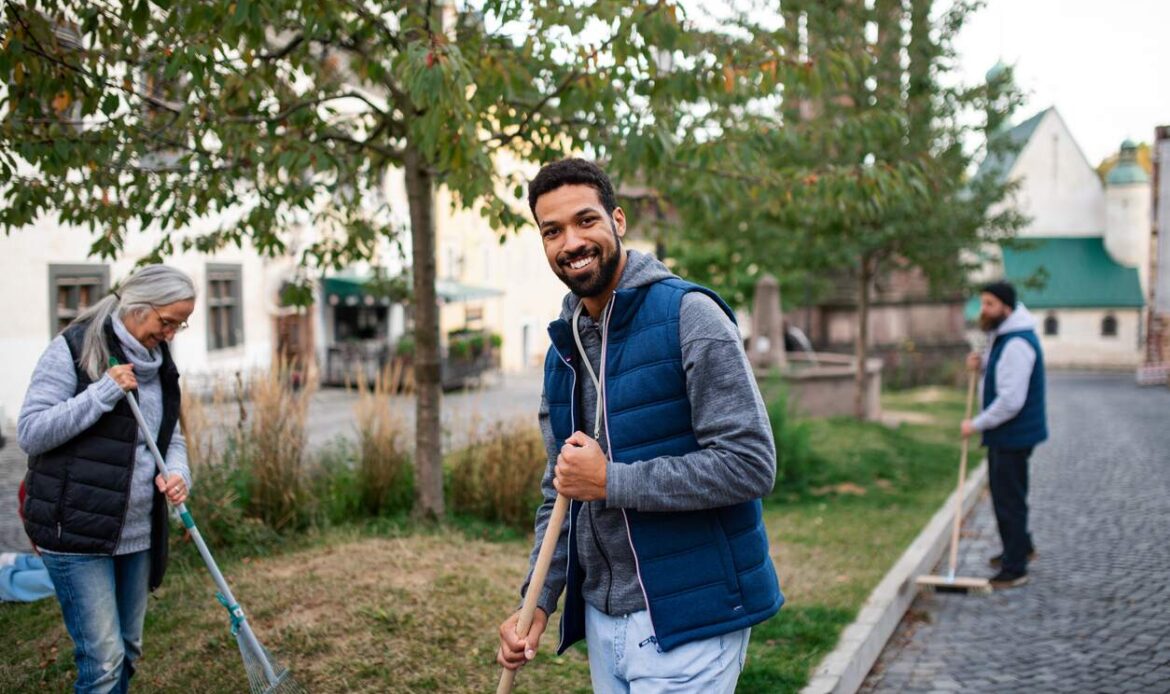
So you think you might be cut out to take on a leadership role in your organization, but aren’t quite sure what to do next.
You want to be noticed by the higher-ups and seen as someone with leadership potential, and to perhaps put yourself in line for a promotion. Where do you start?
Believe it or not, one of the best ways to put yourself on the leadership ladder has nothing to do with your job at all — it starts through volunteer service to others.
The world outside of work is struggling to find responsible, ethical and effective leaders. Churches, neighborhood associations, condo boards and nonprofit organizations of all kinds are in urgent need of people who are willing to give of their time, talent and treasure to help others. Industry-related organizations and membership associations are also in need of individuals to serve on committees, help plan events or even serve on boards of directors.
Is it extra work? Absolutely. Time-consuming and occasionally stressful? Yep. Rewarding? Definitely, both in the psychic benefits of making a difference and in the long-term benefits to your career.
At first, volunteering is a low-impact way to move out of your comfort zone, develop relationships, and build skills in time and task management.
Many organizations in need of volunteers work with vulnerable populations in need of support, providing you with a chance to practice empathy and strengthen your communication skills. As you successfully build connections and begin having an impact, you will likely be asked if you would be willing to take on more responsibility.
When this happens, weigh this ask carefully. There is nothing more discouraging than seeing someone take on added responsibility and then not being in a position to follow through. With this in mind, it is important to set appropriate boundaries and make certain that expectations are clear on both sides.
As your commitment grows, here are five other skills you will develop and put to the test:
Planning, organization and time management: Juggling your family and work responsibilities along with volunteer service can be challenging. Think carefully about the amount of time you can contribute in each area and set appropriate boundaries. Make sure expectations in terms of what you can and cannot do are clear on all sides. You will also get lots of practice in breaking down large tasks into smaller, more manageable pieces and enlisting others to help. Your leadership skills will be tested once you realize that there’s no way you can do all of the things you want to do in a volunteer capacity in the limited time that you have.
Risk-taking: Volunteers have more leeway to take risks and try new things — after all, you are working for free. It is a lower-stakes avenue to try new leadership behaviors, take on initiatives where you have less experience and learn from the occasional mistake.
Influence: Very few organizations driven by volunteers operate in a top-down manner. You will learn to lead through influence, persuading others to commit to the cause because of their passion and desire to help.
Networking: There is no better way to develop a network than through volunteering with like-minded people in service to a cause that you all have in common. More importantly, get to know people at every level.
Stewardship: This refers to the responsible management of resources that are entrusted to one’s care. As volunteers grow into leadership roles, they are called upon to effectively manage the resources of the organization, serve as public advocates and, in many cases, become financial supporters as well. A willingness to shoulder this level of responsibility separates average leaders from impactful ones.
There’s a saying in sports that in order to develop and hone a skill, you have to put in your reps — repeating certain behaviors over and over again. Volunteering can help accelerate your leadership journey by giving you more opportunities to practice the skills and behaviors of effective leaders.
Indeed, many organizations specifically look for individuals with volunteer leadership experience when considering candidates for hiring or promotion. After all, if you can have a positive impact leading a group of people with no incentives except for passion for a cause, imagine what you can accomplish in your professional capacity.
— By Mizell Stewart III


